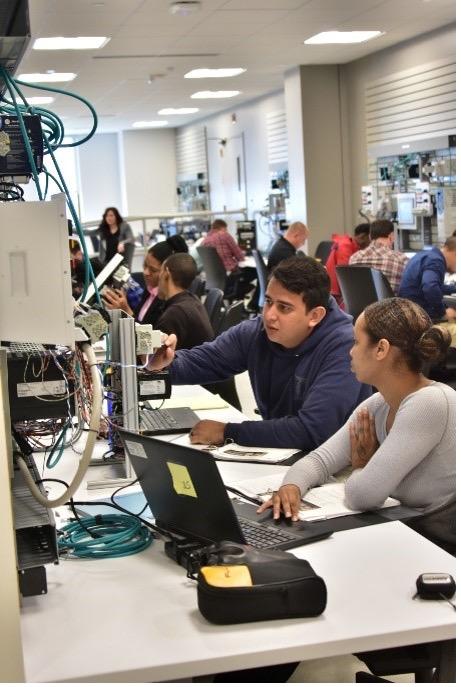Rockwell Automation Facilitates Career Growth and Industry Innovation by Matching Returning Service Workers With Manufacturing Roles
Rockwell Automation matches returning service workers with manufacturing roles, facilitating career growth and furthering industry innovation. By focusing on skills-based hiring and lifelong learning on the job, the company is helping to future-proof their workforce. "We've provided skills for returning service people to compete and thrive in technical-level manufacturing jobs at manufacturers across America."
– Blake Moret, Chairman and CEO of Rockwell Automation | Video courtesy of Business Roundtable
Businesses that continue to struggle with how to fill the tremendous skills gap are finding an answer: military veterans who want to transition into stable and worthwhile civilian careers in manufacturing.
Helping military veterans redeploy their skills in manufacturing is the focus of the Academy of Advanced Manufacturing (AAM). The program, launched in 2017 by Rockwell and ManpowerGroup, has graduated more than 470 military veterans, helping to accelerate their careers in family-sustaining jobs in industry.
During a 12-week period, veterans expand their technical skills through classroom and laboratory training. Then, they take part in a hiring process that nets each veteran an average of two career offers. The graduation rate in 2024 increased from 86% to 91%, and the placement rate stayed strong at 86%.
With each new cohort, AAM expands its impact. Twenty-five percent of the employers who hired AAM graduates did so for the first time in 2024, while the percentage of participating employers that have hired from two or more AAM cohorts increased to 45%.
“Organizations are asking to participate because we’re helping translate useful military skills to high-demand roles like automation/controls technician, electrical technician, and field service technician,” said Phil Bush, AAM business development manager. “We’re also easing the transition for veterans as they return to civilian life. It’s a win for everyone.”
2024 marked the first-ever AAM longitudinal study, which saw compensation growing for AAM graduates by 11%. More than 93% of graduates remain in the manufacturing industry, with 85% satisfied with the program and 83% satisfied with their role placement.



